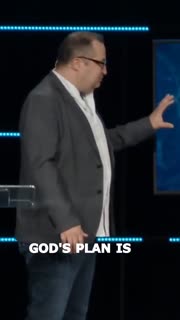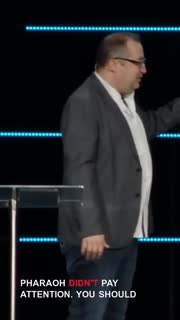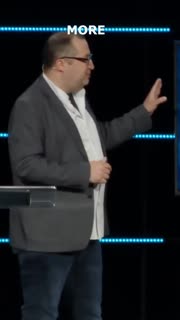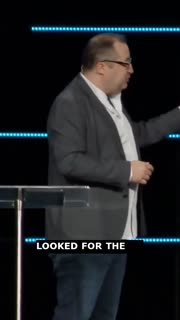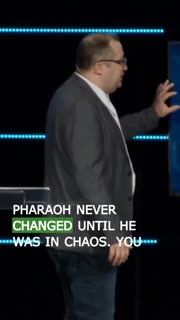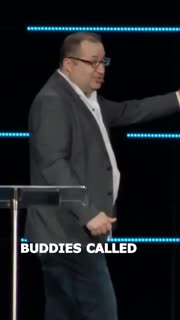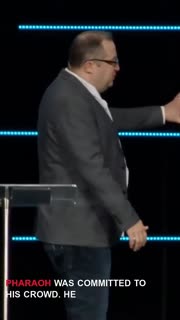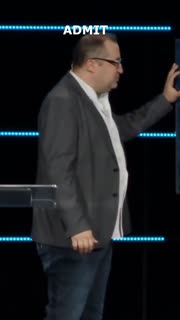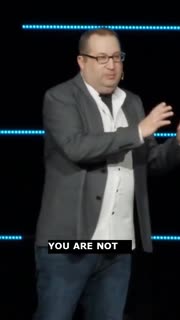Embracing God's Plan: Lessons from Pharaoh and Moses
Devotional
Sermon Summary
Bible Study Guide
Sermon Clips
### Quotes for Outreach
1. "God's plan is better than yours, okay? This is pretty simple. This is pretty basic, okay? God's plan is better than yours. And I think that we all can agree with that. And I think sitting here, we're all like, yeah, absolutely. But I don't think we always put that in practice in our life." [27:12] (18 seconds)
2. "Pharaoh didn't pay attention. You should pay attention when God does something in your life. Right? If something's happening around you, and you're not quite sure what's going on. You don't know. You can't explain it. Or you know that it's the thing of God. You should pay attention to that." [34:51] (14 seconds)
3. "Pharaoh wanted one more night. You should get rid of your frogs. Okay? You should get rid of them now. Like, don't wait. And when I say frogs, I think you guys all understand this. I'm not talking about, like, your pet frog. I'm talking about those things in your life that are in the way of what God is calling you to." [38:56] (16 seconds)
4. "Pharaoh never looked for the light. You should get to the light. Okay. If you're in that place right now and you're considering, you're, you're feeling maybe God's moving in your, in your life and you haven't made a decision to get the light of Christ in you yet, you haven't made that decision. You should get to the light." [01:05:34] (17 seconds)
5. "Pharaoh never changed until he was in chaos. You shouldn't wait for chaos, but this is what we do as people. We have a tendency to not make a change until we have no other path forward, right? You hear these stories, you hear people talk about this. We have a tendency to wait till we're, we're kind of in our worst spot to try to move." [01:07:57] (20 seconds)
### Quotes for Members
1. "If you can accept that God's plan is better than yours, if you can accept that, some really great things can happen. And it turns out that I was actually in pretty good company, I didn't know that. But there is a guy in the Bible, his life is talked about at length in the Old Testament." [29:44] (14 seconds)
2. "Pharaoh's buddies called it, right? They're like, dude, this is God. This is a big deal. This is a thing. Pharaoh didn't listen. You should listen to the people that you trust in your life, okay? Pharaoh chose not to do that." [42:03] (14 seconds)
3. "Pharaoh was committed to his crowd. He was committed to the Egyptians and, and the practices that they had in the beliefs that they had that weren't the belief in God. You should make sure you're in the right crowd, right? This is a good starting point. You should make sure you're in the right crowd." [50:40] (17 seconds)
4. "Pharaoh couldn't admit when he was wrong. You should accept being wrong. Here is a public service announcement. In the next two minutes, if you are sitting next to your spouse, you need to be careful. We have discussions in my house, right? I've been told unequivocally that I need to call them discussions, right?" [54:21] (25 seconds)
5. "You are not your past, right? That's a part of who you are. You shouldn't forget it. You should learn from it. But God is calling you to greater things in the future. And, and if Pharaoh could have wised up, if he could have caught on, if he could have, he could have made some better decisions looking to what God could have done in his life, maybe this would have played out a little bit different." [01:10:22] (21 seconds)
Ask a question about this sermon
1. "God's plan is better than yours, okay? This is pretty simple. This is pretty basic, okay? God's plan is better than yours. And I think that we all can agree with that. And I think sitting here, we're all like, yeah, absolutely. But I don't think we always put that in practice in our life." [27:12] (18 seconds)
2. "Pharaoh didn't pay attention. You should pay attention when God does something in your life. Right? If something's happening around you, and you're not quite sure what's going on. You don't know. You can't explain it. Or you know that it's the thing of God. You should pay attention to that." [34:51] (14 seconds)
3. "Pharaoh wanted one more night. You should get rid of your frogs. Okay? You should get rid of them now. Like, don't wait. And when I say frogs, I think you guys all understand this. I'm not talking about, like, your pet frog. I'm talking about those things in your life that are in the way of what God is calling you to." [38:56] (16 seconds)
4. "Pharaoh never looked for the light. You should get to the light. Okay. If you're in that place right now and you're considering, you're, you're feeling maybe God's moving in your, in your life and you haven't made a decision to get the light of Christ in you yet, you haven't made that decision. You should get to the light." [01:05:34] (17 seconds)
5. "Pharaoh never changed until he was in chaos. You shouldn't wait for chaos, but this is what we do as people. We have a tendency to not make a change until we have no other path forward, right? You hear these stories, you hear people talk about this. We have a tendency to wait till we're, we're kind of in our worst spot to try to move." [01:07:57] (20 seconds)
### Quotes for Members
1. "If you can accept that God's plan is better than yours, if you can accept that, some really great things can happen. And it turns out that I was actually in pretty good company, I didn't know that. But there is a guy in the Bible, his life is talked about at length in the Old Testament." [29:44] (14 seconds)
2. "Pharaoh's buddies called it, right? They're like, dude, this is God. This is a big deal. This is a thing. Pharaoh didn't listen. You should listen to the people that you trust in your life, okay? Pharaoh chose not to do that." [42:03] (14 seconds)
3. "Pharaoh was committed to his crowd. He was committed to the Egyptians and, and the practices that they had in the beliefs that they had that weren't the belief in God. You should make sure you're in the right crowd, right? This is a good starting point. You should make sure you're in the right crowd." [50:40] (17 seconds)
4. "Pharaoh couldn't admit when he was wrong. You should accept being wrong. Here is a public service announcement. In the next two minutes, if you are sitting next to your spouse, you need to be careful. We have discussions in my house, right? I've been told unequivocally that I need to call them discussions, right?" [54:21] (25 seconds)
5. "You are not your past, right? That's a part of who you are. You shouldn't forget it. You should learn from it. But God is calling you to greater things in the future. And, and if Pharaoh could have wised up, if he could have caught on, if he could have, he could have made some better decisions looking to what God could have done in his life, maybe this would have played out a little bit different." [01:10:22] (21 seconds)
